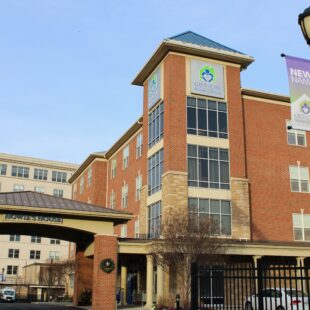Financial Planning for Transplant
Transplant families may be eligible to receive assistance through certain organizations that help decrease the financial burden experienced during a transplant.
Transplant families regularly experience financial and work-related stressors. Often patients and/or caregivers need to leave work early for frequent appointments, take full days off, or even leave jobs completely. Transplant families may be eligible to receive assistance through certain organizations that help decrease the financial burden experienced during a transplant.
There are many resources available that caregivers may not be aware of, such as: the Family and Medical Leave Act, tax credits, assistance with fundraising for transplant, some stipends available for lower income caregivers through Medicaid, Social Security Disability or Supplemental Disability through the Social Security Administration, and more. Many of these programs have different guidelines, so not all patients and/or families may be eligible for assistance. Please talk to your transplant social worker for more information or email CaregiverLifeline@GiftofLifeHowiesHouse.org with questions.
TRANSPLANT COSTS
The cost of a transplant, including preliminary testing, the surgery itself, and post-operative recovery costs, vary across the country and depend on the hospital and organ type. These costs start to add up even before your transplant. Patients commonly rely on several sources to help pay for their medical and non-medical costs of pre- and post-transplantation.
Medical Costs
Medical costs include:
- Insurance deductibles
- Insurance co-pays
- Pre-transplant evaluation and testing
- Surgery
- Fees for the recovery of the organ from the donor
- Follow-up care and testing
- Additional hospital stays for complications
- Fees for surgeons, physicians, radiologist, anesthesiologist and recurrent lab testing
- Anti-rejection and other drugs, which can easily exceed $2,500 per month
- Rehabilitation
Non-Medical Costs
Non-medical costs include:
- Food, lodging and long distance phone calls for you and your family
- Transportation, to and from your transplant center, before and after your transplant
- Plane travel to get to your transplant hospital quickly
- Child care
- Lost wages if your employer does not pay for the time you or a family member spends away from work
If your transplant center is not close to your home, lodging close to the center before and after your surgery may be required. Some centers offer free or low-cost hospitality houses for you and your family.
FINANCIAL ASSISTANCE
Many social service agencies provide grants or emergency assistance to families depending on the specific issue.
Many counties have local organizations that can assist with the following:
- Rent or money management education to avoid eviction or foreclosure
- Food assistance- such as food banks or food cupboards
- Utility assistance
- Modifications to the home if there is someone who is/becomes disabled.
Eligibility differs from one social service organization to the next, so to determine if you are eligible you will need to contact each agency individually. To locate the agencies in your area you can search online for your specific need, or contact your county office for a list of social service agencies in your area. If they cannot help, they should be able to put you in contact with a different office that can assist. In many counties you can also call 2-1-1 to learn more about assistance in your area.
Do not hesitate to speak with your hospital or transplant social worker- inform them of your financial concerns and allow them to provide you with support and resources. Many large hospital transplant departments even have financial assistance for patients. The social workers also know of many different social service agencies in their area that may be able to provide help. If you are feeling stuck and cannot locate any assistance, feel free to email Caregiver Lifeline Program with questions at caregiverlifeline@giftoflifefamilyhouse.org. Caregiver Lifeline may not be able to provide direct solutions, but it may be able to provide other information to help patients and families locate assistance on their own.
IRS AND TAX CREDITS
Information regarding IRS tax credits for caregivers is available through IRS.gov in “frequently asked questions for caregivers.”
Some caregivers may be able to receive up to a $3,000 tax credit for being a caregiver. It is important to talk with your tax preparer, as not all caregiving situations apply.
You can find information for caregivers on the sites below
PREPRARING FOR TRANSPLANT- A GUIDEBOOK FOR TRANSPLANT PATIENTS AND FAMILIES
Get your FREE Guidebook “Preparing for Transplant” in your inbox today! This comprehensive, 22-page guide will provide resources, activities, and helpful tips on a variety of topics.







